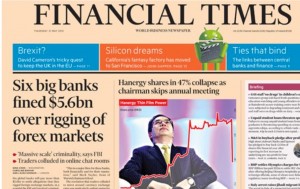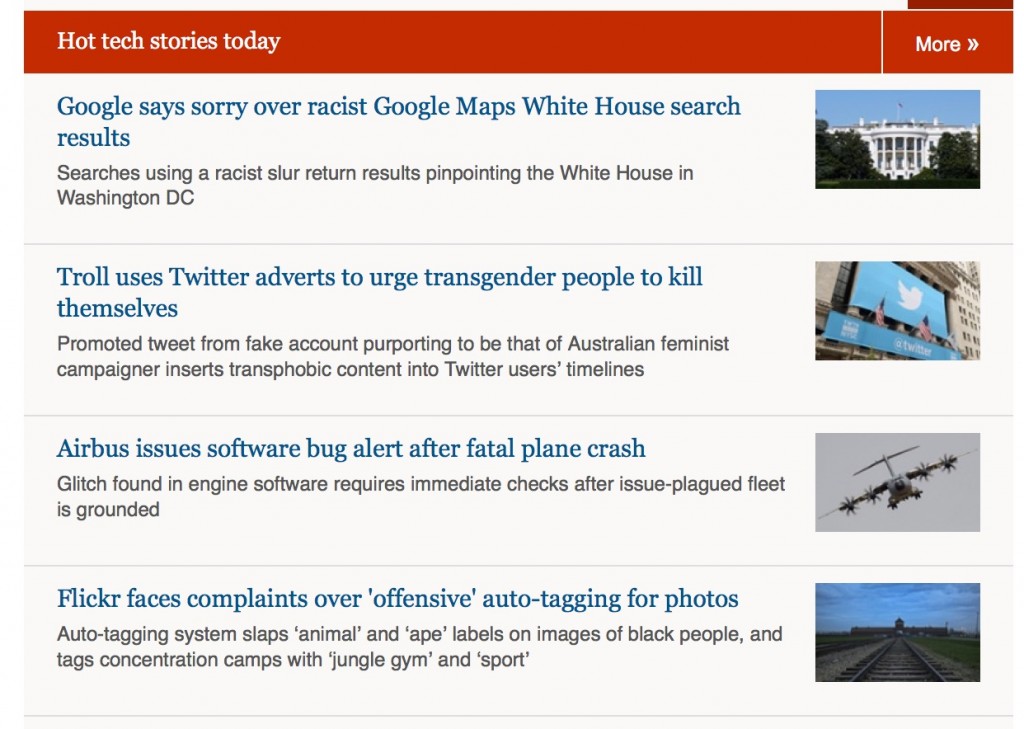
From a New York Times editorial:
“As of this week, Citicorp, JPMorgan Chase, Barclays and Royal Bank of Scotland are felons, having pleaded guilty on Wednesday to criminal charges of conspiring to rig the value of the world’s currencies. According to the Justice Department, the lengthy and lucrative conspiracy enabled the banks to pad their profits without regard to fairness, the law or the public good.”
The Times goes on to point out, however, that besides the criminal label and the fines, nothing much has changed for the banks. In a memo to employees this week, the chief executive of Citi, Michael Corbat, called the criminal behavior “an embarrassment” — a euphemism for crime that wouldn’t pass muster if it were to be expressed by a person accused of benefit fraud, say.
“As a rule”, the Times continues,
“a felony plea carries more painful consequences. For example, a publicly traded company that is guilty of a crime is supposed to lose privileges granted by the Securities and Exchange Commission to quickly raise and trade money in the capital markets. But in this instance, the plea deals were not completed until the S.E.C. gave official assurance that the banks could keep operating the same as always, despite their criminal misconduct.”
Nor do regulators propose to investigate further, to see if individual members of the banks’ staffs can be identified as perpetrators of the crimes.
It stinks to high heaven. As usual.
More on this
Will Hutton: “Criminal bankers have brazenly milked the system. Let’s change it”
Observer Editorial: “Making bankers pay for their misdeeds”



